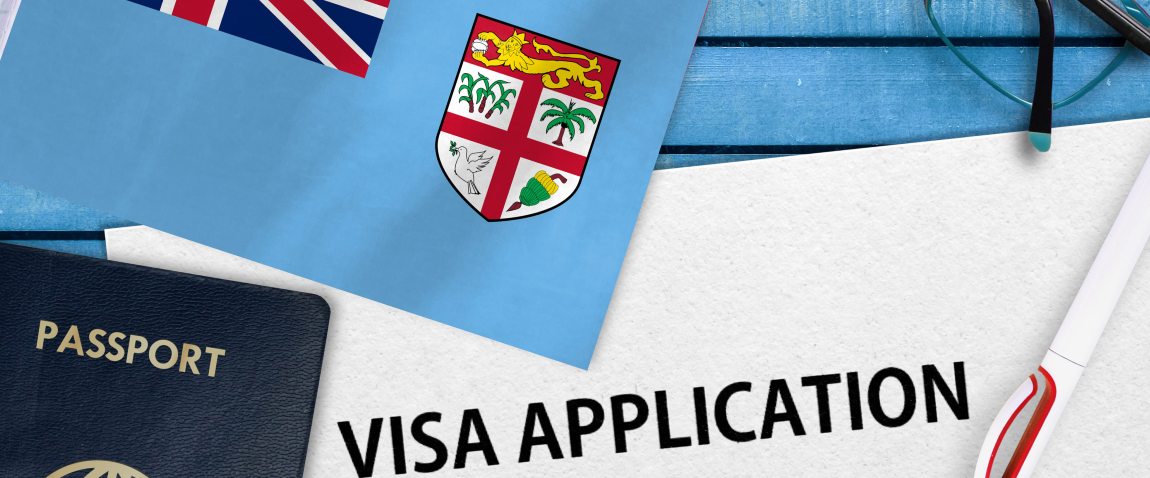
The archipelago of the Fiji Islands, located in the South-West Pacific Ocean about 2000 km from Auckland, offers white beaches, a transparent sea rich in colorful fish and corals, perfect for diving, and then postcard-perfect sunsets.
The archipelago of Fiji is part of Melanesia and consists of 322 islands and islets. It is known for its exotic mix of Melanesian, Polynesian, Micronesian, Hindu, Chinese and European traditions. The first humans arrived on the Fiji Islands around 1500 B.C. The Fijian archipelago was discovered in 1642 by the Dutch navigator A. Tasman, but it took over a century and a half before the first Europeans settled on the islands. By the time Europeans arrived on Fiji, the local population was still in the process of decaying primitive communal life. From the 1860s, Europeans began to establish cotton plantations, and from the 1870s, owing to falling prices on the world market, cotton was replaced by sugarcane. By the end of the 19th century many trading concessions were established on the archipelago by natives of Europe and East Asia. The founding father of Fijian statehood is considered to be Ratu Seru Epenisa Tacombau. From 1871 to 1874, Tacombau was the first king of independent and united Fiji. However, in 1874 he abdicated in favour of British Queen Victoria, to enable the British to resolve economic and social problems in Fiji. In 1970 Fiji gained independence. Under the 1970 constitution, Fiji is a Commonwealth nation. The country is now the most visited tourist destination in Oceania.
Viti Levu is the largest island in the archipelago and is home to more than a third of the country's population. It is also home to Suva, the capital of Fiji. A visit to the city's museum takes you on a journey into the island's history and the unique culture of its inhabitants. Sigatoka attracts holidaymakers with its unique landscapes of sand dunes. О. Vanua Levu is the second largest. A walk around Savusavu, famous for its hot springs, the steam from which shines through the asphalt, brings new impressions.

Taveuni Island is a picturesque corner famous for its stunning waterfalls. Coral reefs are the main attraction of Kandavu. Kandavu, formed by the confluence of two volcanoes.
Take a break from the noise of the city and admire the manicured ponds and lush orchid collection with a stroll through the Garden of the Sleeping Giant.
The locals are warm and hospitable and it's rare to hear of theft, but that's no excuse to leave your personal belongings unattended. Political demonstrations and evening strolls around Nadi and Suva should be avoided and if you do end up staying in town, you should take a taxi to your hotel or home. Remember that loud conversations can be interpreted as aggression, so remain polite and make the most of your holiday.
For anyone wishing to visit this amazing corner of the world. Here you will have the opportunity to see stunningly beautiful coral reefs, the clearest water, a huge variety of wildlife: trees, plants, flowers, exotic animals and birds.

In Fiji can truly relax and soak up the local culture, savour the delicious food and enjoy the stunning scenery. You can try surfing, see ancient cultural monuments, sunbathe on sandy beaches and swim in the clearest water.
Fiji is Oceania's most developed island nation in terms of tourism. The "basics" are in place, with over 300 islands dazzling with blue lagoons, lush beaches and rolling hills covered in evergreen forests. Some 100 islands are inhabited and the rest are uninhabited. Divers and scuba divers have a great time here, as do windsurfing, diving, water-skiing and kayaking. The larger islands are interesting for their flora and fauna.
The population is kind, welcoming and relaxed. Here you forget about stress, worries. You quietly spend hours on the beach chatting or looking at the beauty that surrounds you. The choice of place to rebuild your life is wide, as Fiji has no less than 322 islands, of which only 110 are inhabited. Now you might be thinking how to get Fiji visa? Here are all of your questions answered.
Travel to Fiji islands: here's how

If you want to escape to a deserted Eden and travel to Fiji, guaranteeing total calm and privacy, you must however have the ability to organize yourself for the basic needs, from the generator for electricity to the desalinator for water. Otherwise, you can do like most of the expats, who chose the town of Lautoka, located in the western part of Viti Levu, one of the four major islands along with Vanua Levu, Kadavu and Tavenuni.
We are keen to specify that this paradise has its drawbacks. Living in a tropical country does not only mean beautiful beaches and dreamy sea, but also cyclones, these are unpredictable events and one should not underestimate the force of nature. One must be alert and ready to face the emergency.
Do you need a visa to work in Fiji? The answer is, YES

As for job opportunities, we recommend self-employed businesses and would like to specify that in the tourism sector you need a 51% local partner. If you manage to open a business that does not yet exist in Fiji, the government provides incentives, but be prepared for very long waiting times for paperwork and permits. On the other hand, here it really does feel like being in paradise, it's an experience that changes you profoundly.
Types of Work Visas and what do you need for a visa to work in Fiji?

Noncitizens can choose from a variety of work permits, depending on the type of work they want to conduct.
• Work permit: This basic permit applies to any long-term job that does not fall into one of four categories. You must include a justification for not hiring a resident for this application as an employer.
Short-term work permit: This document covers any job that lasts shorter than a year.
• Under education: This permit is required for educational work and must be endorsed by the Ministry of Education, Heritage, and the Arts (MEHA).
• Under Religious: Individuals must apply for this authorization if they plan to operate in a religious setting. Employees are not required to have any endorsements, but they must be legally registered with the church where they wish to work.
• Volunteer: This permit type is required if an individual intends to volunteer while abroad. There is no requirement for industry approval.
Fiji also provides exceptions to the permit requirement for government or diplomatic activity, as well as investment licenses for business ventures. It's also worth noting that work permits do not apply to residence permits. Your staff will require the right papers for living in the nation before applying for any work visa.
What are Fiji work visa requirements?

Your employees will need a few key documents when presenting their work visa applications to the Fiji Immigration Department, including:
• A valid passport
• A signed and completed arrival card
• An approval letter from the Immigration Department
• A confirmed address in the country
Fiji work visa requirements and permit application requirements vary depending on the kind, but all require a curriculum vitae (CV) with relevant job experience and education.
How to get Fiji visa

A number of documentation and approvals are required to for Fiji work visa application. The method begins with you and the employee working together to complete the application. This phase should be finished prior to the employee's arrival, which means they must have a position lined up with your organization before coming to the United States.
As the employer, you must file an application with the Immigration Department to hire a noncitizen employee. You'll get an application that asks for a variety of things from here. The following are examples of Fiji work visa application attachments:
• Information on the position's training program
• Previous residences
• A medical certificate
• Proof of English language proficiency
The application will subsequently be sent to the Immigration Department for processing by you or the employee. Your staff can begin working after they acquire their work permit papers.
Fiji work visa: check online and important Factors to Consider

When applying for a work permit, there are several issues to consider, including time, money, permit renewal, and residency.
A long-term Fiji work visa processing time typically takes 21 days to complete. When deciding on a start date for a job, keep this in mind. There is a processing cost associated with applications, so be prepared to pay when submitting your paperwork. It's also worth noting that long-term Fiji work visa processing time can get longer as it must be renewed every three years in order for an individual to continue working legally.
Remember that in order to legally reside in the country, employees must first apply for a residence permit.
So, now that you are familiar with the process you might be wondering what are the Fiji work visa fees? Depending on your country Fiji work visa fee may vary but in general the prices are bearable and go around 482 Fiji dollars which equals 194 Euro.
Still have some questions? Fiji work visa check online is possible on various embassy as well as Fiji immigration website.
Get your visa with one click
Ready to get visa assistance without waste time?



